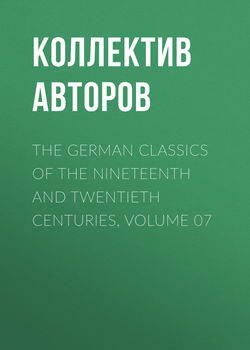Читать книгу The German Classics of the Nineteenth and Twentieth Centuries, Volume 07 - Коллектив авторов, Ю. Д. Земенков, Koostaja: Ajakiri New Scientist - Страница 5
GEORG WILHELM FRIEDRICH HEGEL
THE PHILOSOPHY OF LAW (1832)
THE CONSTITUTION
THE POWER OF THE PRINCE
ОглавлениеBecause sovereignty contains in ideal all special privileges, the common misconception is quite natural, which takes it to be mere force, empty caprice, and synonymous with despotism. But despotism means a state of lawlessness, in which the particular will as such, whether that of monarch or people (ochlocracy), is the law, or rather instead of the law. Sovereignty, on the contrary, constitutes the element of ideality of particular spheres and functions under lawful and constitutional conditions.
The sovereignty of the people, conceived in opposition to the sovereignty residing in the monarch, stands for the common view of democracy, which has come to prevail in modern times. The idea of the sovereignty of the people, taken in this opposition, belongs to a confused idea of what is commonly and crudely understood by "the people." The people without its monarch and without that whole organization necessarily and directly connected with him is a formless mass, which is no longer a State. In a people, not conceived in a lawless and unorganized condition, but as a self-developed and truly organic totality—in such a people sovereignty is the personality of the whole, and this is represented in reality by the person of the monarch.
The State must be regarded as a great architectonic edifice, a hieroglyph of reason, manifesting itself in reality. Everything referring merely to utility, externality, and the like, must be excluded from its philosophic treatment. That the State is the self-determining and the completely sovereign will, the final decision being necessarily referred to it—that is easy to comprehend. The difficulty lies in grasping this "I will" as a person. By this it is not meant that the monarch can act arbitrarily. He is bound, in truth, by the concrete content of the deliberations of his council, and, when the constitution is stable, he has often nothing more to do than to sign his name—but this name is important; it is the point than which there is nothing higher.
It may be said that an organic State has already existed in the beautiful democracy of Athens. The Greeks, however, derived the final decision from entirely external phenomena, from oracles, entrails of sacrificial animals, and from the flight of birds. Nature they considered as a power which in this wise made known and gave expression to what was good for the people. Self-consciousness had at that time not yet attained to the abstraction of subjectivity; it had not yet come to the realization that an "I will" must be pronounced by man himself concerning the decisions of the State. This "I will" constitutes the great difference between the ancient and the modern world, and must therefore have its peculiar place in the great edifice of the State. Unfortunately this modern characteristic is regarded as merely external and arbitrary.
It is often maintained against the monarch that, since he may be ill-educated or unworthy to stand at the helm of the State, its fortunes are thus made to depend upon chance. It is therefore absurd to assume the rationality of the institution of the monarch. The presupposition, however, that the fortunes of the State depend upon the particular character of the monarch is false. In the perfect organization of the State the important thing is only the finality of formal decision and the stability against passion. One must not therefore demand objective qualification of the monarch; he has but to say "yes" and to put the dot upon the "i." The crown shall be of such a nature that the particular character of its bearer is of no significance. Beyond his function of administering the final decision, the monarch is a particular being who is of no concern. Situations may indeed arise in which his particularity alone asserts itself, but in that case the State is not yet fully developed, or else is ill constructed. In a well-ordered monarchy the law alone has objective power to which the monarch has but to affix the subjective "I will."
Monarchs do not excel in bodily strength or intellect, and yet millions permit themselves to be ruled by them. To say that the people permit themselves to be governed contrary to their interests, aims, and intentions is preposterous, for people are not so stupid. It is their need, it is the inner power of the idea, which, in opposition to their apparent consciousness, urges them to this situation and retains them therein.
Out of the sovereignty of the monarch flows the prerogative of pardoning criminals. Only to the sovereignty belongs the spiritual power to undo what has been done and to cancel the crime by forgiving and forgetting.
Pardon is the remission of punishment, but does not abolish right. Right remains, and the pardoned is a criminal as he was before the pardon. The act of mercy does not mean that no crime has been committed. This remission of punishment may be effected in religion, for by and in spirit what has been done can be made un-done. But in so far as remission occurs in the world, it has its place only in majesty and is due only to its arbitrary decision.
